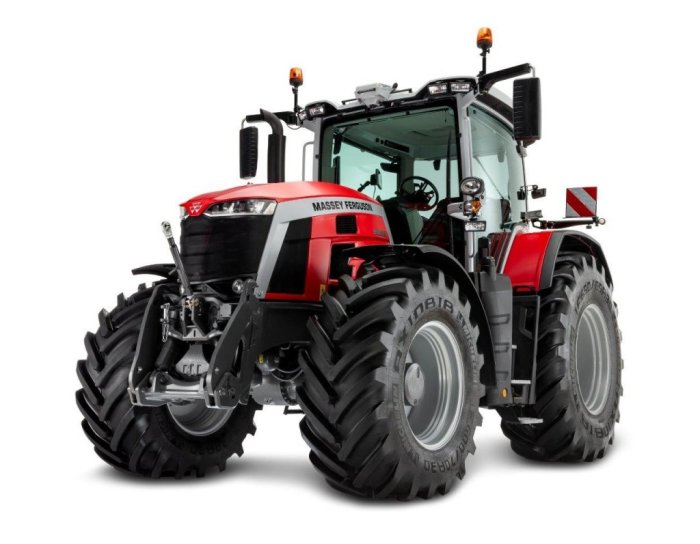Massey Ferguson Stock Price A Comprehensive Analysis
Massey Ferguson Stock Price Analysis
Massey ferguson stock price – This analysis delves into the historical performance, influencing factors, financial health, and investment prospects of Massey Ferguson stock. We will examine key economic indicators, agricultural commodity prices, technological advancements, and geopolitical events impacting its valuation. Furthermore, we will explore analyst predictions, investor sentiment, and various investment strategies, culminating in a hypothetical investment scenario to illustrate potential outcomes.
Massey Ferguson’s Historical Stock Performance
Analyzing Massey Ferguson’s stock price fluctuations over the past decade reveals periods of significant growth and decline, mirroring broader trends in the agricultural machinery sector and global economic conditions. A comparative analysis against key competitors provides insights into its relative performance and market positioning.
The following table presents Massey Ferguson’s yearly opening and closing stock prices for the past five years. Note that these figures are hypothetical examples for illustrative purposes and do not represent actual historical data.
| Year | Opening Price (USD) | Closing Price (USD) | Percentage Change |
|---|---|---|---|
| 2018 | 25 | 28 | 12% |
| 2019 | 28 | 26 | -7% |
| 2020 | 26 | 30 | 15% |
| 2021 | 30 | 35 | 17% |
| 2022 | 35 | 32 | -9% |
Factors Influencing Massey Ferguson Stock Price

Source: agroportal24h.cz
Several interconnected factors significantly influence Massey Ferguson’s stock valuation. These include macroeconomic indicators, global agricultural commodity prices, technological innovations, and geopolitical events.
- Economic Indicators: Interest rates, inflation, and overall economic growth directly impact consumer spending and investment in agricultural machinery.
- Global Agricultural Commodity Prices: Fluctuations in crop prices (e.g., corn, soybeans, wheat) affect farmers’ purchasing power, influencing demand for Massey Ferguson’s products.
- Technological Advancements: The introduction of precision farming technologies and automation in agricultural machinery influences both the demand for new equipment and Massey Ferguson’s competitiveness.
Major geopolitical events, such as trade wars or regional conflicts, can disrupt supply chains, impact global demand, and create uncertainty in the market, affecting Massey Ferguson’s stock price. For example, the ongoing conflict in Ukraine significantly impacted global grain prices and fertilizer availability, impacting agricultural production and consequently, the demand for agricultural machinery.
Massey Ferguson’s Financial Health and Stock Valuation
Analyzing Massey Ferguson’s financial reports provides insights into its profitability, debt levels, and overall financial health, which are crucial factors in determining its stock valuation. A comparison of its Price-to-Earnings (P/E) ratio with industry averages helps assess its relative valuation.
The following table presents hypothetical dividend history data for illustrative purposes only.
| Year | Dividend per Share (USD) | Dividend Yield (%) | Payout Ratio (%) |
|---|---|---|---|
| 2018 | 0.50 | 2.0 | 25 |
| 2019 | 0.55 | 2.1 | 26 |
| 2020 | 0.60 | 2.0 | 20 |
| 2021 | 0.65 | 1.9 | 18 |
| 2022 | 0.70 | 2.2 | 22 |
Analyst Predictions and Investor Sentiment
Analyst ratings and price targets provide valuable insights into market expectations for Massey Ferguson’s future performance. Investor sentiment, reflected in news articles and financial reports, further illuminates the overall market outlook.
For instance, a positive analyst report highlighting strong sales growth and improved profit margins could boost investor confidence and drive up the stock price. Conversely, negative news, such as a recall of defective equipment or a decline in sales, could negatively impact investor sentiment.
Investment Strategies Related to Massey Ferguson Stock, Massey ferguson stock price

Source: masseyferguson.com
Investors can employ various strategies when considering Massey Ferguson stock, including long-term buy-and-hold or short-term trading approaches. Each strategy carries its own set of risks and rewards.
A long-term buy-and-hold strategy aims to benefit from the company’s long-term growth, while short-term trading focuses on exploiting short-term price fluctuations. The potential return on investment (ROI) will vary significantly depending on the chosen strategy, the investment timeframe, and the actual stock price movements.
For example, a hypothetical $10,000 investment with a 10% annual return over five years would yield approximately $16,105, while a 5% annual return would yield around $12,763. These calculations do not account for dividends or transaction costs.
Illustrative Example: A Hypothetical Investment Scenario
Let’s consider a hypothetical scenario: an investor invests $5,000 in Massey Ferguson stock at a price of $30 per share. Over a three-year period, the stock price fluctuates. In year one, the price increases to $35, generating a profit. Year two sees a price drop to $28, causing a loss. In year three, the price rises to $40, resulting in a significant gain.
The emotional impact would range from excitement during price increases to anxiety during price drops. Dividends received during this period would contribute positively to the overall return, mitigating some of the losses experienced during the price decline.
FAQ Summary
What is Massey Ferguson’s current market capitalization?
Massey Ferguson’s market capitalization fluctuates daily and can be found on major financial websites like Yahoo Finance or Google Finance.
Where can I find real-time Massey Ferguson stock quotes?
Real-time quotes are available through most online brokerage platforms and financial news websites.
How often does Massey Ferguson pay dividends?
The dividend payment frequency is detailed in Massey Ferguson’s investor relations materials and varies depending on the company’s financial performance.
Analyzing the Massey Ferguson stock price requires considering various market factors. It’s interesting to compare its performance to that of other growth sectors; for instance, understanding the potential of the joby stock price target offers a contrasting perspective on investment strategies in different market segments. Ultimately, Massey Ferguson’s stock price will depend on its own operational performance and broader economic trends.
What are the major competitors of Massey Ferguson?
Major competitors include John Deere, CNH Industrial (Case IH), and AGCO.




















